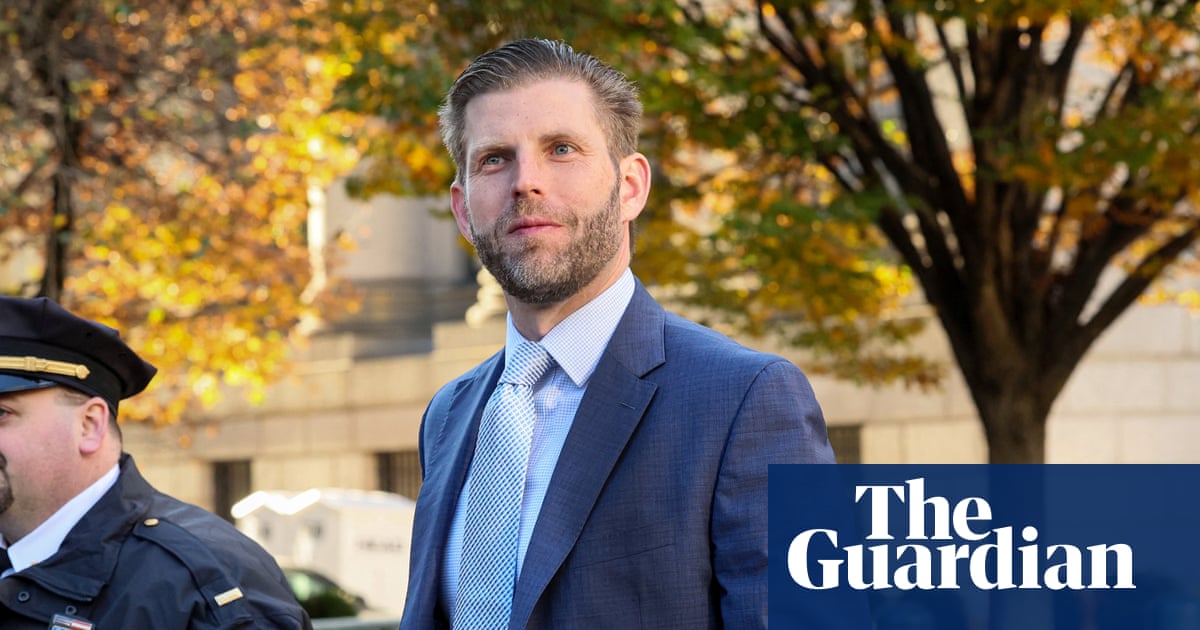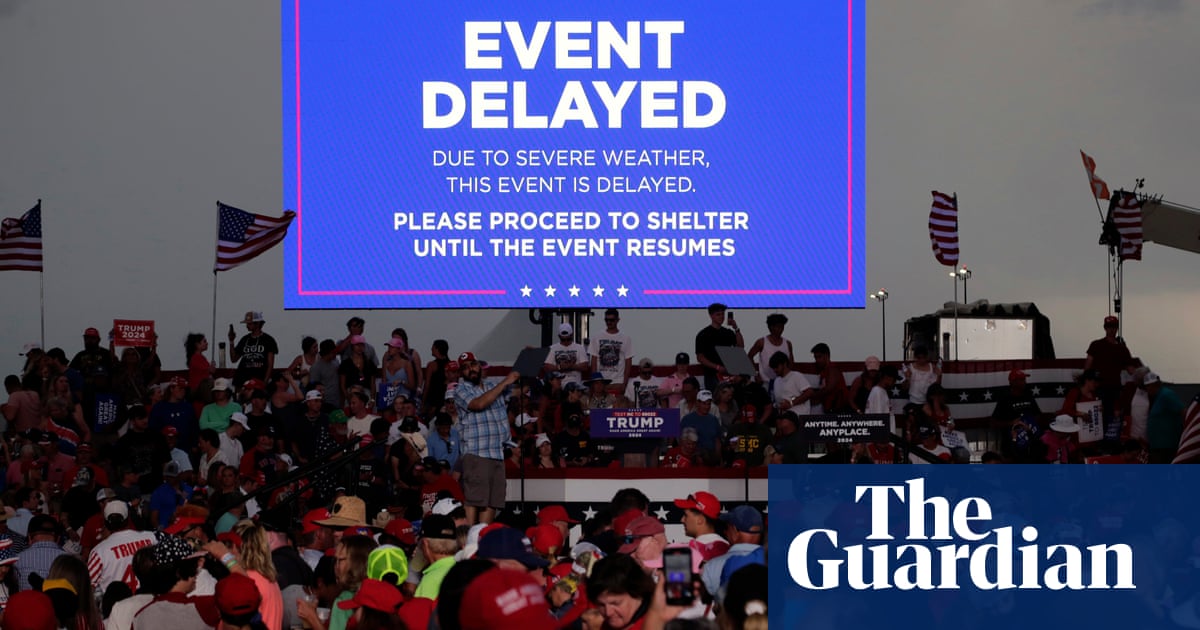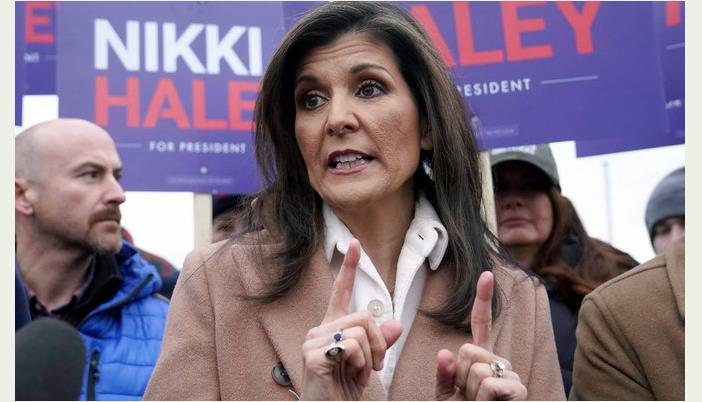
Texas Covid-19 hospitalizations exceed 10,000 patients as crisis escalates
Texas governor Greg Abbott has warned residents of the state that “the worst is yet to come” after a week that saw new coronavirus diagnoses exceed 10,000 new cases per day on Tuesday and total hospitalizations surpass 10,000 on Friday, according to the Associated Press.
The governor who oversaw one of the US’s fastest attempts to reopen is now urging residents to wear masks and warning that he might impose a new lockdown.
“Things will get worse,” Abbott told a local television station. “The worst is yet to come as we work our way through that massive increase in people testing positive.”
“The next step would have to be a lockdown,” he added Friday. “The last thing I want to do, the last thing anybody in Texas wants to do is see another lockdown.”
The surge of new patients is already overtaxing the health care system for the state’s 30m residents. The state’s congressional delegation have requested federal government assistance to bring a field hospital to the Rio Grande Valley. A top official in one rural county said the area’s sole hospital was down to two ventilators and that the county required a refrigerated trailer to store dead bodies.
“Several months ago, I warned of a potential tsunami if we did not take this more seriously,” Hidalgo County Judge Richard Cortez told the AP. “The tsunami is here.”
Senator Ted Cruz has responded to Trump’s incoherent interview on immigration with outrage, though it will be hard for anyone in Congress to know quite what they’re dealing with until the White House issues some kind of clarification of the president’s remarks.
Donald Trump discussed a possible “road to citizenship” for Deferred Action for Childhood Arrival (Daca) recipients in an interview with Telemundo today, though the details of any policy action, or whether one even exists, remains entirely unclear.
In an interview with Jose Diaz-Balart, Trump repeatedly mentioned signing “a big immigration bill”, though bills are authored and passed by Congress, and no such bill has been sent to him for his signature. Trump repeatedly resisted Diaz-Balart’s efforts to steer him back into safe constitutional waters by suggesting that he might be referring to an executive order rather than a bill.
Adding to the confusion, he said of Daca: “We put it in and we’re probably going to be taking out again.”
Judge halts Monday execution; DOJ to appeal
The first federal execution in 17 years, which was scheduled to take place on Monday, has been called off by a federal judge due to Covid-19, the AP has reported.
Judge Jane Magnus-Stinson ruled that the execution of Daniel Lee should be delayed until the family of his victims are able to travel safety to attend it. Lee, 47, was convicted of the 1996 killings of William Mueller, his wife, Nancy, and her 8-year-old daughter, Sarah Powell.
But the US Justice department has already filed notice that it plans to appeal the judge’s warning to the 7th Circuit court of appeals.
Per the Associated Press:
Attorney General William Barr has said part of the reason to resume executions was to carry out the sentences imposed by the court and to deliver a sense of justice to the victims families, but relatives of those killed by Lee did not want that.
They have pleaded for years that Lee instead should receive the same life sentence as the ringleader in the deadly scheme. The relatives, including Earlene Branch Peterson, who lost her daughter and granddaughter in the killing, had urged the Trump administration for months not to move forward with the death sentence and had argued their grief is compounded by the push to execute Lee in the middle of a pandemic.
Two other federal executions are scheduled for next week, and are not affected by the judge’s order.
The geopolitical battles over social media platforms took a slightly bizarre turn today when Amazon ordered some of its employees to delete TikTok from their phones due to security concerns over the Chinese app, only to reverse themselves hours later, with a spokesperson saying the email was sent in error.
My colleague Kari Paul spoke to a cybersecurity expert about why TikTok is causing disquiet among US politicians and leaders:
The biggest concern regarding TikTok is that its parent company, based in China, is required to share information collected on users with the Chinese government, said Douglas Schmidt, a cybersecurity expert and professor of engineering at Vanderbilt University.
“This clearly has issues with regards to privacy for users,” he said.
Schmidt said other concerns were that the Chinese government would use the downloaded software to surveil activity and content on TikTok user phones, particularly of those in the US military or government, or censor content on TikTok “that doesn’t conform with the Chinese government’s positions on human rights”.
In 2019, leaked internal documents showed TikTok instructed moderators to censor videos that mention Tiananmen Square, Tibetan independence, or the banned religious group Falun Gong. Previously it was reported that TikTok was scrubbed of any videos of Hong Kong protests.
DNC organizers lay out how delegates will partipate remotely
Guardian US senior political reporter Daniel Strauss reports:
Organizers for the Democratic National Convention in Milwaukee later this year laid out directions for how convention delegates will vote remotely.
The directions, obtained by the Guardian, were authored by Jason Rae, the Democratic National Committee’s secretary. The 2020 Democratic National Convention, where former vice president Joe Biden will formally be nominated as his party’s presidential candidate, will partially be in Milwaukee and partially be virtual because of the coronavirus pandemic. DNC officials and health officials concluded that state delegations, which normally attend the convention, should not travel and instead participate in the convention remotely.
“Given the pandemic, the DNCC has developed a voting system that will allow convention delegates to safely and securely cast ballots for all required votes,” Rae writes. “Each delegate will be sent an individualized ballot with unique identifiers via email. As you know, the Office of the Secretary at the Democratic National Committee is working to certify each delegate, which includes gathering the delegate’s best contact information, including email and phone number.”
Voting will start on August 3 and run for 12 days, through August 15.
“During the voting period, each certified delegate will receive a ballot and directions for completing and returning the ballot electronically,” Rae continues in the email. “For security, the ballot design will tie each ballot to the individual to whom it is sent through individualized and serial identifiers. Ballots will be electronically fillable so a delegate will not need access to a printer. Once completed, delegates will electronically submit their ballots to their State Democratic Party.”
Organizers will work with state parties to set up secure systems for receiving ballots.
“The State Parties will be responsible for collecting all ballots from convention delegates as they would if we were conducting votes in person at the convention,” Rae continued. “At the conclusion of voting, each state delegation chair will submit a tally sheet to the Secretary’s Office that formally records the number of votes cast on each item of convention business.”
The Biden campaign and Bernie Sanders campaign are also holding webinars over the next few days to provide delegates information on the new voting process.
The directions and new approach to state conventions voting is one example of how the convention ceremonies will be different because of the coronavirus pandemic. Republican organizers are reportedly considering holding portions of the Republican National Convention outside, also in response to the coronavirus.
Hello everyone, this is Julia Carrie Wong in Oakland, California picking up the live blog for the rest of the afternoon.
Just a few miles away, on the northern side of the San Francisco bay, one of the worst Covid-19 outbreaks in the country has created a “humanitarian crisis” at San Quentin state prison, where almost 1,500 people have tested positive for Covid-19 and seven have died.
My colleague Abené Clayton has been covering the state’s “historic health screw-up”, and today she reports that California has announced a plan to release up to 8,000 people from the state’s prisons in an effort to curb the spread of the virus.
Abené writes:
Officials on Friday announced three separate efforts, approved by the governor, Gavin Newsom, that they say will decrease the prison population by 8,ooo by the end of August. The measures mark the largest release efforts the state administration has taken since Covid-19 began to circulate among prison staff and incarcerated people.
The first initiative expands a previous effort to expedite the release of people with 180 or fewer days left on their sentences to include people serving time for serious felonies.
The second measure is an immediate review of cases of people with less than a year left to serve in eight prisons that have large populations at high risk of developing Covid-19 complications.
The state will also launch a one-time program under which those incarcerated in state prisons, including people serving time for violent felonies, will receive a credit shortening their sentences by three months.
But public health experts have told Abene that these measures will not be enough to allow for the social distancing required to bring the outbreak under control
Today so far
That’s it from me today. My west coast colleague, Julia Carrie Wong, will take over the blog for the next few hours.
Here’s where the day stands so far:
A court refused to life a temporary restraining order against Donald Trump’s niece, Mary Trump. A judge this afternoon extended the order until a further decision on Monday. That means she won’t be free to do any interviews about her damning new book about the president and the family. The book is due out on Tuesday and is not subject to restraint after a TRO against the publisher was recently lifted.
Trump postponed his rally in Portsmouth, New Hampshire, which was planned for tomorrow night. The president said he was “forced” to postpone the event because of weather, but the decision comes as campaign officials have reportedly voiced concerns about low turnout at the event because of coronavirus.
Trump traveled to Florida for a roundtable event, but he avoided discussing the state’s coronavirus crisis. Florida has been reporting record levels of new cases, but the president has downplayed recent surges in several states by falsely blaming the increases on expanded testing.
The president threatened the tax-exempt status of universities and schools as he pushes schools to reopen. Trump has repeatedly said schools must open their doors this fall, even though his administration has sent mixed signals on how schools can safely reopen. School officials have expressed concerns about the potential spread of coronavirus in the classroom.
A federal judge has set a hearing for next week in the case involving the president’s financial records. Judge Victor Marrero, who previously ruled that Trump’s business records and tax returns had to be turned over to the grand jury, has set a filing deadline for Wednesday and a hearing for Thursday in the case. The announcement comes one day after the supreme court ruled the president is not categorically immune from grand jury subpoenas.
Trump said he is “looking at” a pardon for his former associate Roger Stone. The president said Stone, who is expected to report to prison on Tuesday, “was very unfairly treated.”
Julia will have more coming up, so stay tuned.
Pastor and civil rights activist to Chicago mayor: take bull by horns
Reverend Gregory Livingston, well known in his native Chicago for his campaigning and community efforts to tackle corruption, gun violence and street gangs, spoke of “a tale of two Americas” in the shocking spate of shootings in several US cities last weekend.
It is estimated that at least 160 people were shot in towns and cities across the US from Friday evening through Sunday of the July Fourth holiday weekend. Several children were wounded or killed by stray or bullets in Chicago, Philadelphia, New York and Atlanta, which have seen more shootings in recent weeks than is typical at this time of year.
Some of an interview he did on the phone with the Guardian in New York, where he moved last summer and has been working alongside Black Lives Matter and preaching in various parts of the city, was in our news piece. But here are some more of his remarks that there was not space for in that wider piece.
He warned Chicago mayor Lori Lightfoot, in office for just about a year, that she “is really going to have to take leadership, head on. People are dying and they cannot wait.”
“She must take the bull by the horns,” he said. She should “hold a press conference and hold community meetings to talk about race.”
He urged her to talk to police leaders, state leaders, root out racist and corrupt city politicians, direct more money to Black-led anti-violence organizations rather than “white-led organizations with no boots on the ground”; address herself to broken promises from previous leaders about police reform and shortages of mental health facilities, health care resources and school resources in many areas, he said.
Livingston complained of “two Chicagos” that are very segregated - the affluent downtown and north side, in contrast to the south and west sides.
When street shootings rise: “You cannot look at the fruit of these tragedies without looking at the tree,” he said. He added that he wasn’t looking for mercy for murders or an absolution of personal responsibility, but urgent attention on the root causes of division and inequality.
He said: “Some say ‘if Black lives matter then why do you guys kill each other?’ We are a violent country. There is individual responsibility but there are also conditions that create a climate for violence.”
Livingston says Lightfoot has a difficult job “but it’s a job she wanted”.
He urged her: “It’s going to take courage. Call the racists out.”
Here’s Livingston talking to the Guardian in person in Chicago in 2018.
Judge extends temporary restraining order on Mary Trump
We won’t be hearing in person from Donald Trump’s niece Mary Trump this weekend. Despite her book being due out next week and already heavily covered in the press, including here in the Guardian, she is not free of legal action by the family just yet.
Here’s our story on her bombshell book from the Guardian’s Martin Pengelly earlier this week.











